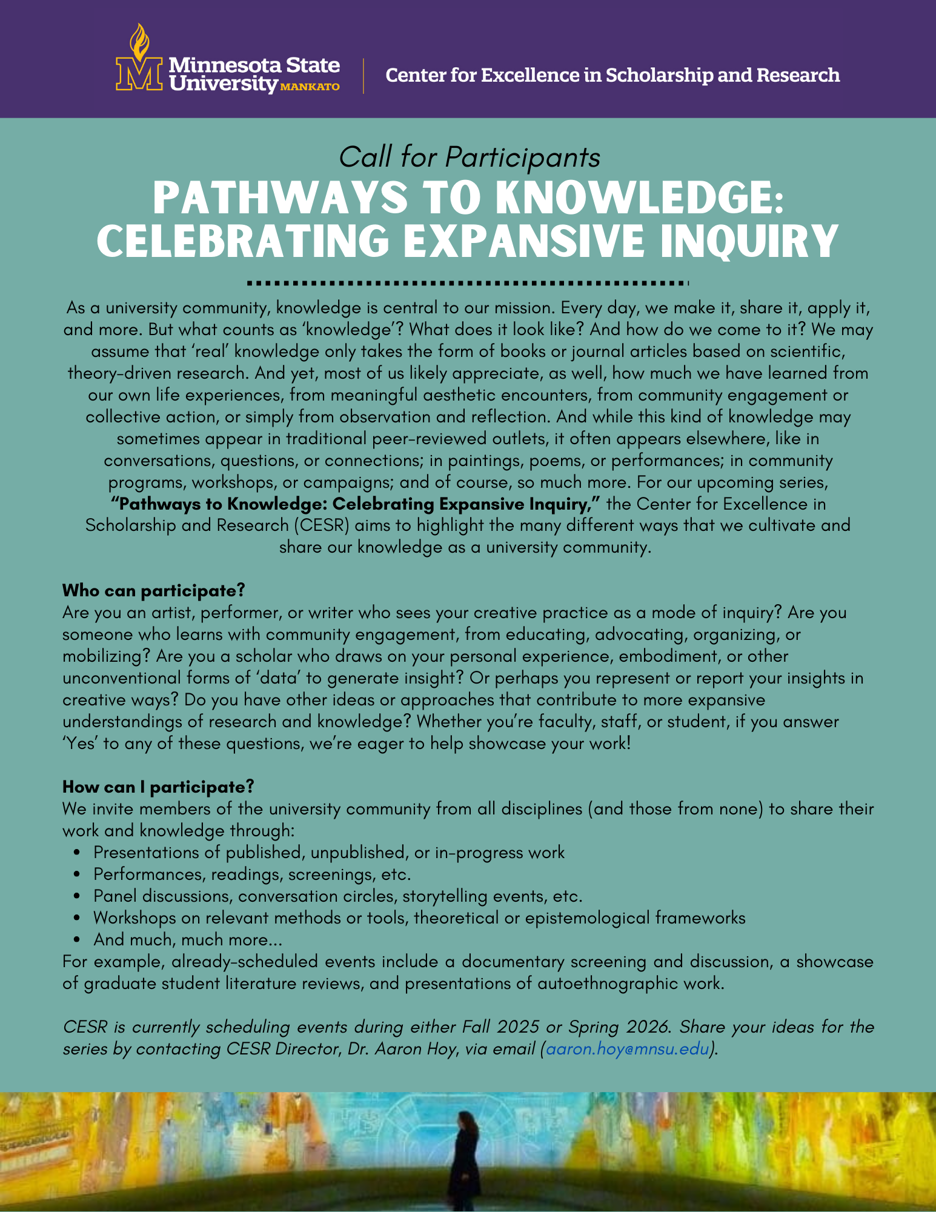Pathways to Knowledge: Celebrating Expansive Inquiry
As a university community, knowledge is central to our mission. Every day, we make it, share it, apply it, and more. But what counts as ‘knowledge’? What does it look like? And how do we come to it? We may assume that ‘real’ knowledge only takes the form of books or journal articles based on scientific, theory-driven research. And yet, most of us likely appreciate, as well, how much we have learned from our own life experiences, from meaningful aesthetic encounters, from community engagement or collective action, or simply from observation and reflection. And while this kind of knowledge may sometimes appear in traditional peer-reviewed outlets, it often appears elsewhere, like in conversations, questions, or connections; in paintings, poems, or performances; in community programs, workshops, or campaigns; and of course, so much more. For our upcoming series, “Pathways to Knowledge: Celebrating Expansive Inquiry,” the Center for Excellence in Scholarship and Research (CESR) aims to highlight the many different ways that we cultivate and share our knowledge as a university community.
Who Can Participate?
Are you an artist, performer, or writer who sees your creative practice as a mode of inquiry? Are you someone who learns with community engagement, from educating, advocating, organizing, or mobilizing? Are you a scholar who draws on your personal experience, embodiment, or other unconventional forms of ‘data’ to generate insight? Or perhaps you represent or report your insights in creative ways? Do you have other ideas or approaches that contribute to more expansive understandings of research and knowledge? Whether you’re faculty, staff, or student, if you answer ‘Yes’ to any of these questions, we’re eager to help showcase your work!
How can I participate?
We invite members of the university community from all disciplines (and those from none) to share their work and knowledge through:
- Presentations of published, unpublished, or in-progress work
- Performances, readings, screenings, etc.
- Panel discussions, conversation circles, storytelling events, etc.
- Workshops on relevant methods or tools, theoretical or epistemological frameworks
- And much, much more...
For example, already-scheduled events include a documentary screening and discussion, a showcase of graduate student literature reviews, and presentations of autoethnographic work.
CESR is currently scheduling events during either Fall 2025 or Spring 2026. Share your ideas for the series by contacting us via email (cesr@mnsu.edu).


